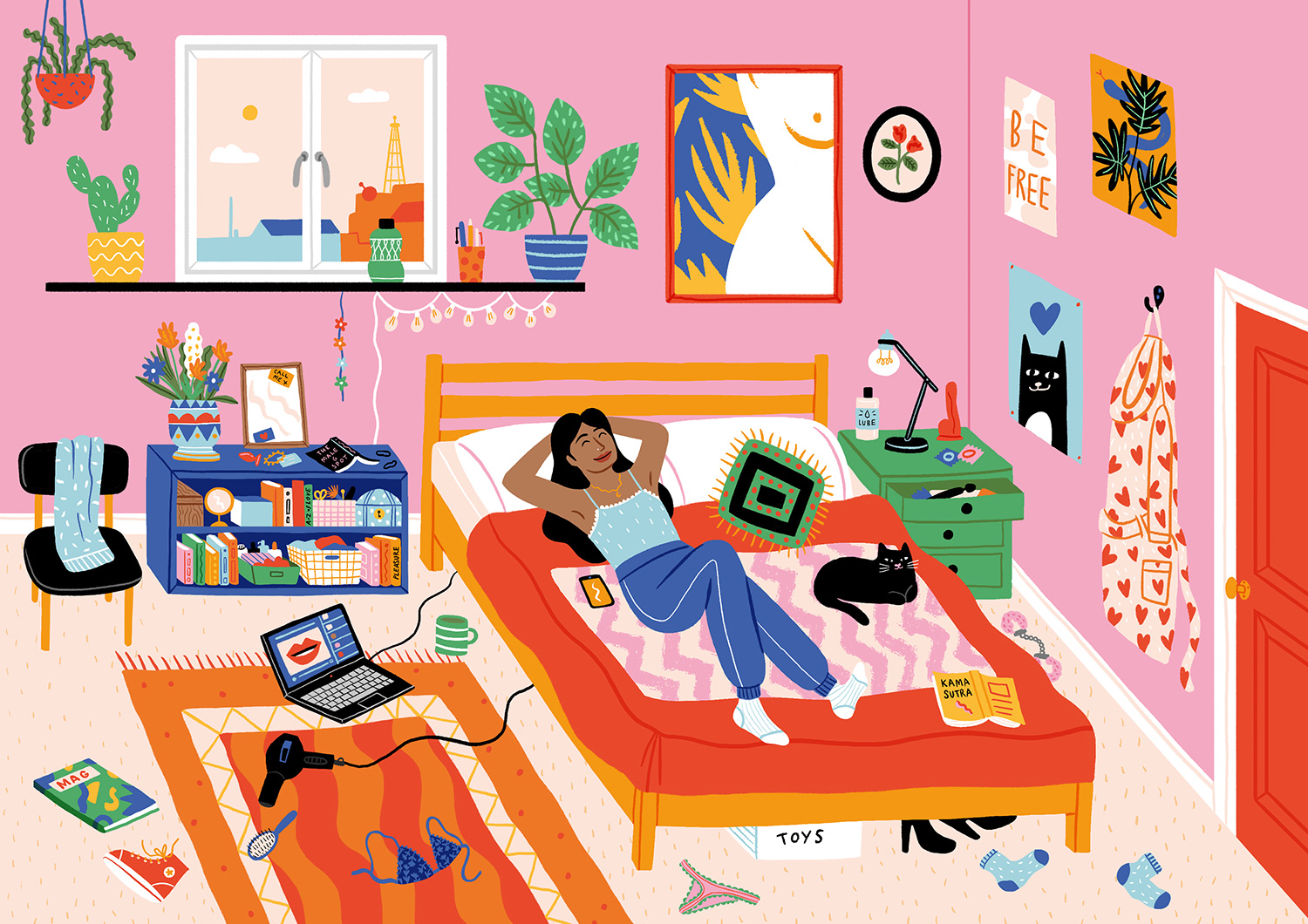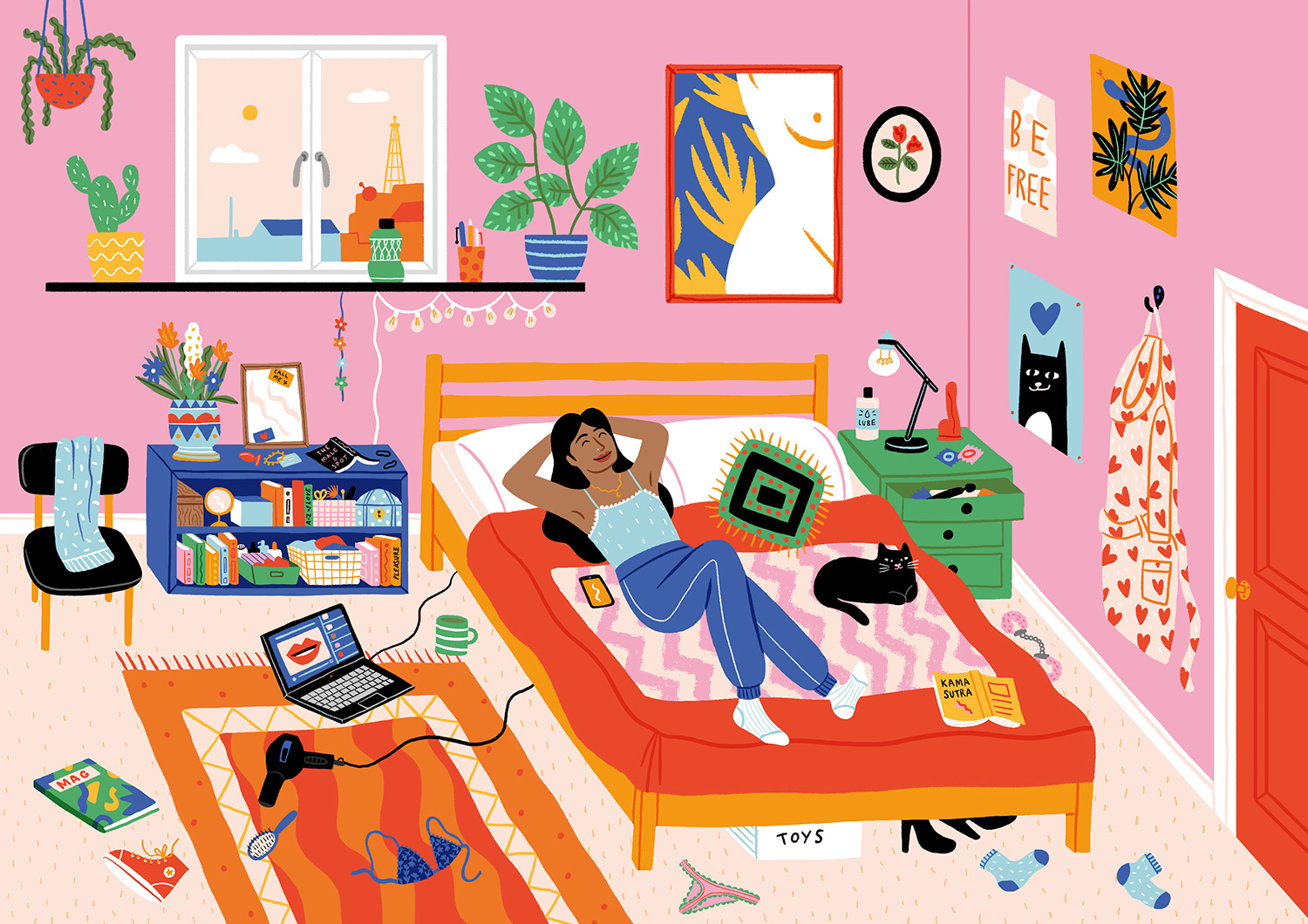Find out more about The Open University’s statistics qualifications.
Sex can strengthen the couple's relationship and facilitate a unique sense of emotional closeness. In the throes of passion, thoughts of domesticity and the outside world can dissipate.
Sexual intimacy tends to fluctuate over the life course. It ebbs and flows as life takes over and time for intimacy dwindles. While identified as one of the most private aspects of our lives, sex is also affected by external influences, such as our jobs. Research has now shown how our sex lives have been deeply impacted by the coronavirus pandemic.
So here are five ways in which the pandemic has impacted sex lives.
1. Changes in sexual frequency
Research carried out by the Natsal (National Surveys of Sexual Attitudes and Lifestyles) COVID team1 found that in the four months following the UK’s first lockdown in March 2020 around half of the people in Britain perceived no change in how often they had partnered sex. However, this wasn’t the case for everyone and largely depends on the type of partnership people were in during lockdown with two-thirds of people not living with a partner perceiving a decline in their sexual frequency.
In contrast, the people most likely to have had sex were those in a steady relationship who were living with their partner (81%), which perhaps isn’t all that surprising as COVID restrictions prevented people who weren’t living with a partner from being physically together. Nonetheless, many non-cohabiting partners did continue to have sex (24%), especially once ‘support bubbles’ were introduced.2
2. Changes in relationship patterns
Other research completed by Relate in partnership with eHarmony reported ‘turbo relationships’ with people making a commitment to each other and moving in together more quickly than before, but this didn’t mean that everything was plain sailing. In their study, 12% of those in relationships reported that their sex life had worsened during the pandemic.3
3. Changes in relationship quality
The crux of Natsal-COVID study findings is that many people were still having sex during the lockdown, but this didn’t mean that relationships were the same as before. Couples in ‘steady’ relationships reported that the quality of their sex life was more likely to have deteriorated than the overall quality of their relationship, which was more likely to improve.4
It’s likely that the stress and anxiety provoked by the pandemic was a significant contributing factor here, down adversely impacting sexual desire while conversely strengthening bonds of emotional closeness as couples turned to each other for support.
4. Changes in sexual practice
Among those who’d had sex during the lockdown, it was those in casual relationships who were more likely than those in steady partnerships to have used sex toys, while others characterise a ‘panic buying’ frenzy of sex toys by couples and single people alike during the pandemic.5
5. Changes in sex toy sales
Findings from market research flesh out the Natsal-COVID picture of post-pandemic sex lives. Reports from sex toy companies across the globe reported booming sales during the pandemic.
Survey research carried out by US sex toy retailer Tracy’s Dog reported that during the pandemic people were more likely to buy new sex toys and use them more often. The Wow Tech Group reported a 200-per-cent increase in online sales between April 2019 and April 2020 while Lelo saw a 60-per-cent rise in internet sales in March 2020. Sex toy and lingerie retailer Ann Summers has seen a 27 per cent increase in sales of sex toys.
Let’s talk about sex
Sex remains one of the most difficult areas to talk about in relationships. Less-than-positive comments are often experienced as personal criticism leading to defensiveness and hurt feelings. So, let’s get the conversation started. Have things changed for you during the pandemic? The OU is working with Paired to enable couples to thrive. Daily questions and quizzes prompt conversations about everything from sexual fantasies to engaging with sex and intimacy issues in relationships. Check out the Paired app.
People tend to compare their sex lives against fictional others based on hearsay, guesswork and popular culture misinformation. Recognizing how external factors impact the most private aspects of our lives can put changes in perspective. Knowing the truths about sex is important to avoid making unfair comparisons – that’s why the Natsal studies are so important! The OpenLearn resources provide evidence-based facts on sex in Britain using data from the last decennial Natsal study www.open.edu/openlearn/britishsexstats







Rate and Review
Rate this article
Review this article
Log into OpenLearn to leave reviews and join in the conversation.
Article reviews